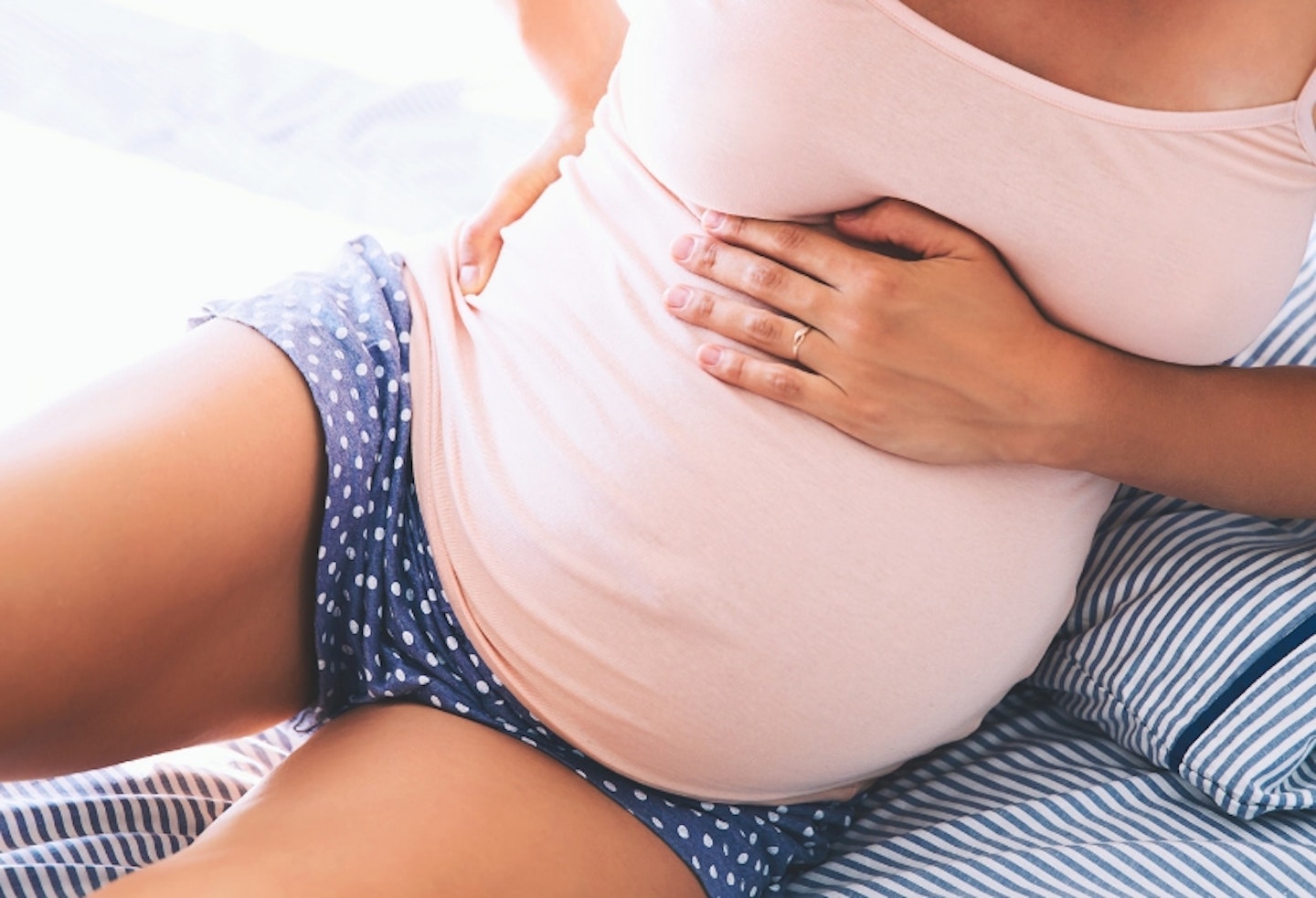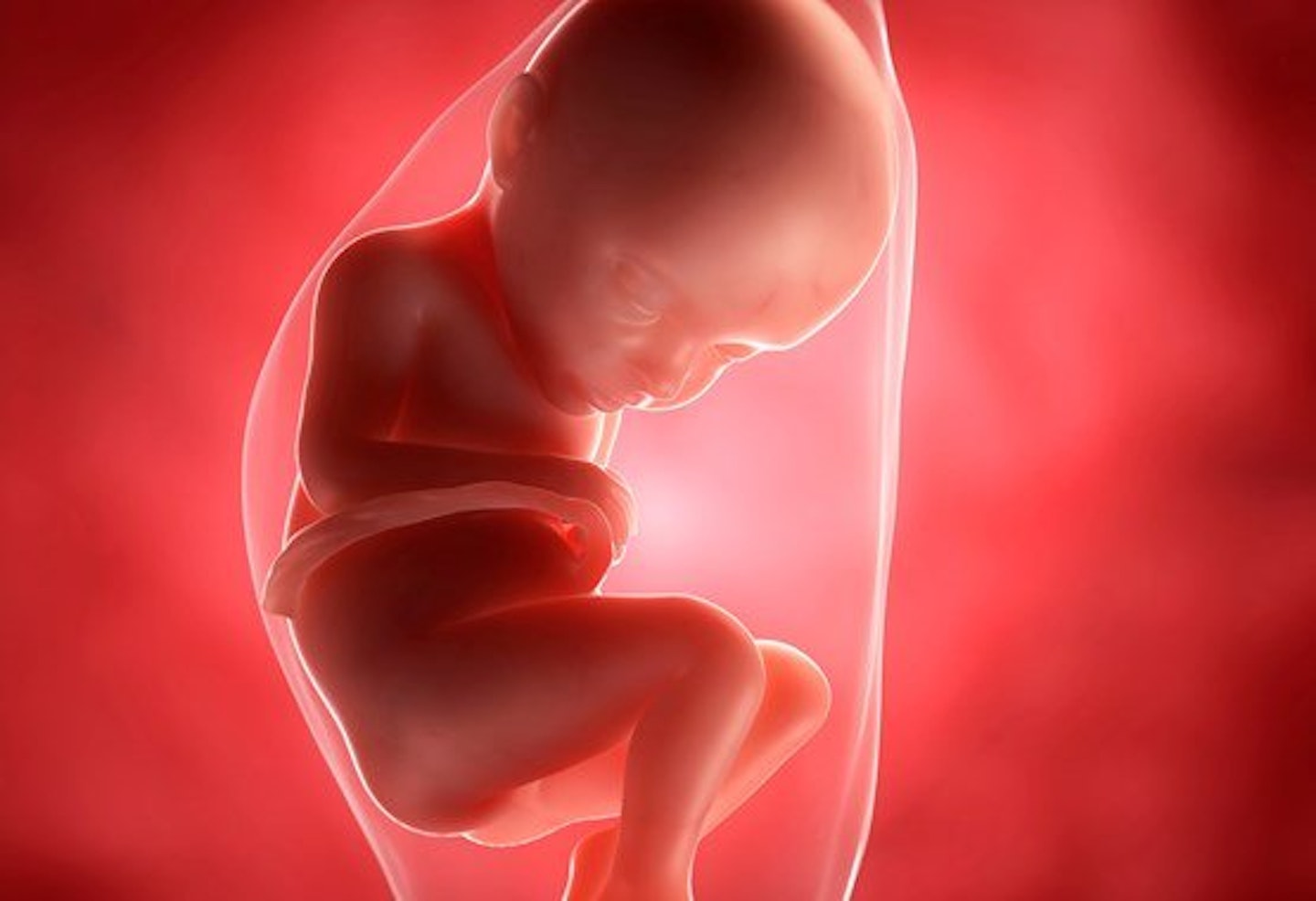At 32 weeks pregnant, your baby is growing rapidly and gaining weight, while you might be feeling a little more forgetful than usual. Now is the perfect time to start planning the practical aspects of birth. To help you navigate this stage, we spoke with Emiliana Hall, founder of The Mindful Birth Group®️, creators of the award-winning Mindful Natal®️ courses, the PregnaHub®️ app, and accredited programs for midwives and teachers.
Emiliana shares insights into your baby’s development, changes in your body, and common symptoms to watch for at 32 weeks pregnant. Plus, we’ll help clarify how to calculate exactly how far along you are in weeks and months!
What's 32 weeks pregnant in months?
At 32 weeks pregnant, you are roughly 8 months pregnant. Nearly there!
How big is my baby at 32 weeks?
Remember when your baby was the size of a tiny lime? Things have definitely changed now, as the big day approaches: she’s now the size of a pineapple. She weighs between three and a half and four pounds, and measures between 15 and 17 inches. It’s nearly time for her to make her big appearance!

Your body at 32 weeks pregnant
Leaking breasts
The pregnancy glamour just never ends.
This time, it’s the turn of leaky breasts to wreak havoc on your body.
As your breasts grow in the [third trimester]{href='https://www.motherandbaby.com/pregnancy-and-birth/pregnancy/your-third-trimester' target='_blank' rel='noreferrer noopener'}, they might start to leak a yellowish fluid called colostrum, the precursor to breast milk, and the first milk your baby will taste.
Consider nursing pads if the leaking becomes uncomfortable.
Back pain
At this point, you’ll be gaining about a pound a week, half of which will go straight to your baby. She will gain between a third and half of her birth weight during the next seven weeks as she prepares for survival outside the womb. All the changes in your body could lead you to experience lower back pain.
If you do feel pain in your lower back, tell your midwife right away, as this can be a sign of premature labour.
Braxton Hicks contractions
Your body may also treat you to a little something called Braxton Hicks contractions. This slightest ache is easily mistaken for the start of labour but is effectively a dress rehearsal for the big day. They’re usually not too painful and do not come at regular intervals or get closer together or feel stronger with time.
Braxton Hicks are your uterus hardening ready for labour, some women experience them more than others and they can last anything from 15 seconds to two minutes.

You can tell if they’re real signs of labour by changing positions: if the contractions stop, don’t worry, it’s just Braxton Hicks.
If they get progressively stronger and more regular, call your midwife, as this is usually a sign of labour.
Heartburn
Now that your uterus is pushing up near your diaphragm and taking up so much space in your stomach, you may experience heartburn or shortness of breath.
Sleeping propped up on pillows or eating smaller meals might help to make you more comfortable.
Clumsiness
You’ve no doubt experienced the pregnancy brain haze known as baby brain, when, thanks to your lovely pregnancy hormones, your memory’s compromised to say the least – but what about baby-induced clumsiness?
Thanks to hormonal changes loosening your joints and ligaments and your changed centre of gravity and extra weight, you might find you’re bumping into things and tripping over a lot.
So step away from those staggering stilettos and wobbly wedges: it’s sensible shoes all the way, or at least until your little one is born.
Reduced appetite
You haven’t got much space in your stomach these days, so it’s no surprise you might find your appetite is reduced. Try to eat small meals at regular intervals rather than large meals.
Shortness of breath
The growth of your baby is pushing up against your lungs and limiting your ability to catch your breath. Remember not to push yourself and to take it easy where possible.
Darker nipples
Nobody knows exactly why this happens but before birth the areolas look darker.
This may be so your baby can see them more easily when breastfeeding.

Baby development at 32 weeks
In the last few weeks of your baby’s time in your tummy, it’s all about practising for life outside of the womb. They are practising those all-important skills they will need as a baby, from breathing and sucking to swallowing and [kicking]{href='https://www.motherandbaby.com/pregnancy-and-birth/pregnancy/when-can-you-feel-your-baby-move' target='_blank' rel='noreferrer noopener'}.
Your baby’s more beautiful than ever, with the fat accumulating under her skin getting rid of that once-transparent look: they are now fully opaque. The digestive system is also ready to go in preparation for breastfeeding in just a few weeks’ time.
They have fully-fledged toenails, fingernails, and hair: gorgeous! Thanks to your baby’s growth, they are probably feeling a bit cramped in there now. That’s why you might feel a bit less dancing in there and a bit more tapping and squirming.
Don’t worry though, your baby is still super-cosy, and has even reverted back to a curled-up position for maximum comfort. Sometime soon, they’ll also move around and get into a head-first position ready for the birth. Don't worry if they aren't lying head down yet, there's still time for your little one to turn.
By 32 weeks, your baby weighs around 1.7 kilograms (3.7 pounds) and measures approximately 42 centimetres (16.5 inches) from head to heel. Significant developmental milestones at this stage include:
Growth and fat accumulation
Your baby is continuing to gain weight and build up fat layers, which are essential for temperature regulation after birth.
Brain development
The brain is growing rapidly, becoming more complex and developing essential neural connections. This growth supports sensory perception and cognitive functions.
Lung maturation
The lungs are still developing, preparing for the first breath. Although not fully mature, your baby is practising breathing movements, inhaling amniotic fluid.
Sleep patterns
Your baby now has more defined sleep and wake cycles, and you might notice periods of increased activity followed by quiet times.
Positioning
Many babies start to move into a head-down position in preparation for birth. However, some babies may still be in other positions, such as breech, Emiliana says.
32 weeks pregnant symptoms
As your pregnancy progresses, you may experience a range of symptoms. Here are some common ones at 32 weeks:
Braxton Hicks contractions
These "practice" contractions may become more frequent and noticeable. They are usually irregular and not painful, though they can cause discomfort.
Shortness of breath
As your uterus expands, it can press against your diaphragm, making breathing more difficult. Practise good posture and consider doing gentle prenatal yoga or deep breathing exercises.
Heartburn and indigestion
Hormonal changes and the growing uterus pressing on your stomach can lead to heartburn. Eating smaller, more frequent meals and avoiding spicy or fatty foods can help manage this.
Swelling
Mild swelling in your feet, ankles, and hands is common. To reduce swelling, elevate your feet when possible, stay hydrated, and avoid standing for long periods.
Back pain
The extra weight and shifting centre of gravity can strain your back. Practising good posture, wearing supportive shoes, and using a pregnancy pillow can help alleviate discomfort.
Fatigue
As your body works harder to support your baby, you may feel more tired. Rest whenever you can and prioritise sleep, adds Emiliana.
Looking after you at 32 weeks pregnant
-
Prenatal appointments: Continue attending regular prenatal check-ups. Your healthcare provider will monitor your baby's growth and your health, checking for conditions like gestational diabetes and pre-eclampsia.
-
Kick counts: Keep track of your baby's movements. Knowing their usual patterns can help you notice any changes that may need medical attention. Aim to feel at least 10 movements within two hours.
-
Nutrition and hydration: Maintain a balanced diet rich in vitamins, minerals, and protein. Drink plenty of water throughout the day to stay hydrated.
-
Exercise: Engage in safe, moderate exercise like walking, swimming, or prenatal yoga. Exercise can boost your mood, improve sleep, and reduce discomfort.
-
Birth plan: Finalise your birth plan and preferences and discuss it with your midwife or birthing team. Include preferences for birth place, pain relief, birthing positions, and who you want to be present during labour, says Emiliana.
Emotional well-being
The third trimester can be an emotional time. Here are some ways to support your mental and emotional health:
-
Stay connected: Share your thoughts and feelings with your partner, friends, or family. Joining a support group or antenatal class can provide comfort and companionship.
-
Self-care: Prioritise activities that help you relax and recharge. This could be reading, taking a bath, practising mindfulness, or spending time on hobbies.
-
Seek support: If you’re feeling overwhelmed, anxious, or down, don’t hesitate to reach out for support. Your midwife or GP can provide resources and referrals to counselling if needed, says Emiliana.
Preparing for baby
With your due date approaching, it's a good time to prepare for your baby's arrival:
-
Nursery preparation: Ensure the nursery is set up with essentials like a crib, changing table, and baby clothes. Make sure everything is ready and organised.
-
Hospital bag: Start packing your hospital bag with necessary items such as comfortable clothing, toiletries, baby outfits, and important documents.
-
Childcare classes: Consider attending antenatal classes or workshops. These can provide valuable information on childbirth, breastfeeding, and newborn care.
-
Car seat: Ensure you have a suitable car seat installed and know how to use it properly, says Emiliana.
What to discuss with your midwife or doctor
-
Symptoms and concerns: Bring up any symptoms or concerns you have, no matter how minor they may seem. Your healthcare provider is there to support you and ensure your pregnancy is progressing smoothly.
-
Birth preferences: Discuss your birth plan and any preferences you have regarding labour and delivery.
-
Postnatal care: Ask about what to expect after birth, including infant feeding support, postpartum recovery, and newborn care." continues Emiliana.
Other things to consider at 32 weeks pregnant
Make a plan: The big day is getting closer and closer, so why not take the chance now to run through everything regarding your delivery with your other half? Map out two different travel routes to the hospitaland practice to make sure you know how long they take. If you’re not having a home birth, check to see if your antenatal class will give you a tour of the hospital. If not, then make sure you organise this yourself – and familiarise yourself with the admission procedures you will have to go through when your labour commences. The more prepped you are, the more confident you’ll feel once thosecontractions begin.
Think about feeding: While you don't have to make any decisions until your little one makes their arrival, it's worth considering how you might like to feed your baby and preparing for this by reading around breastfeeding and bottle feeding, make sure you have necessities such as a breast pump and bottle steriliser.
Stock up on healthy snacks: You may discover you're no longer feeling very hungry any more thanks to your uterus taking ownership of your insides. However it's still important to keep your energy up so try for regular small portions of healthy food instead.According to Emiliana Hall, the founder of The Mindful Birth Group®: "Reaching 32 weeks of pregnancy means you're now well into the third trimester, with just a few weeks left before meeting your baby. This phase is marked by continued growth and development for your baby, along with notable physical and emotional changes for you. Here’s what you need to know and what you can expect at 32 weeks pregnant, says Emiliana.
Meet the expert
Emiliana Hall is the founder of The Mindful Birth Group® which provides award-winning Mindful Natal® courses and the PregnaHub® app, as well as an accredited Teacher Training program and Midwife CPD courses.
She is also an experienced Birth and Postnatal Doula. Emiliana's vision is to make vital antenatal and postnatal education and ongoing support accessible to everyone in the UK.
About the author
Stephanie Spencer is the Deputy Digital Editor at Mother&Baby and auntie to four aged 7 to 2 months old. With a particular interest in health, she loves discovering products that make parent’s lives easier.
